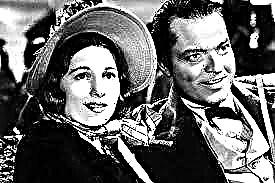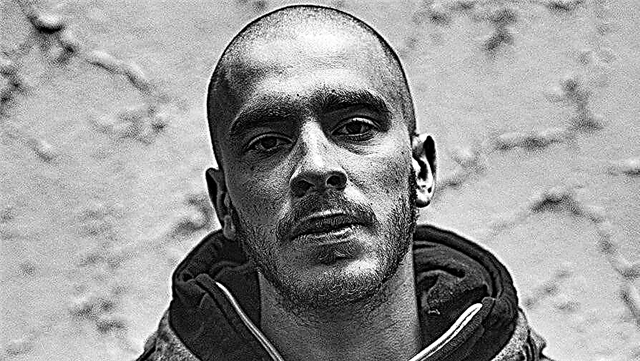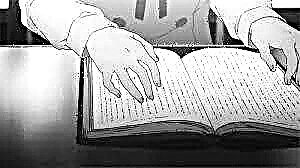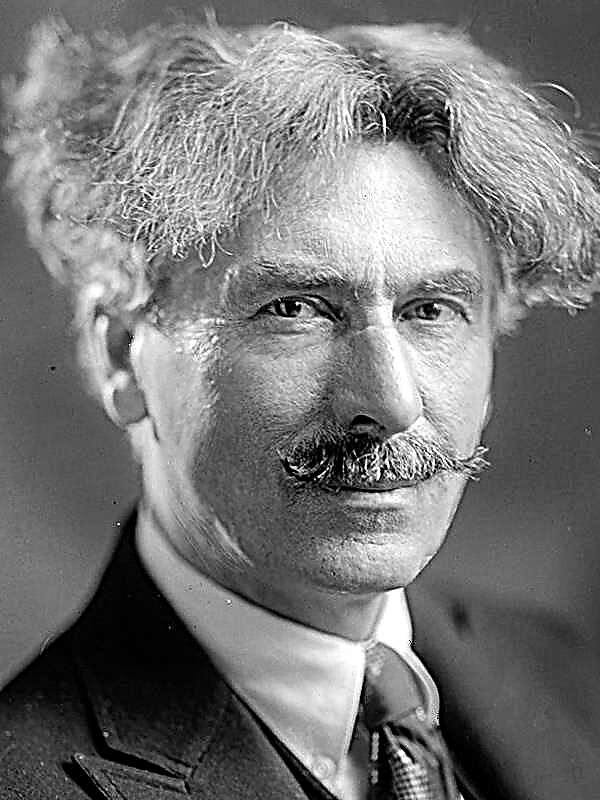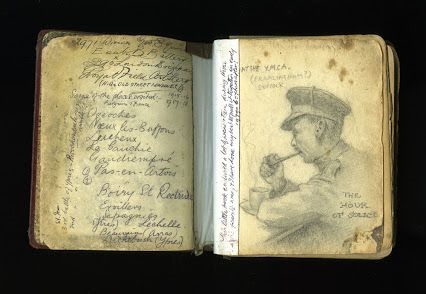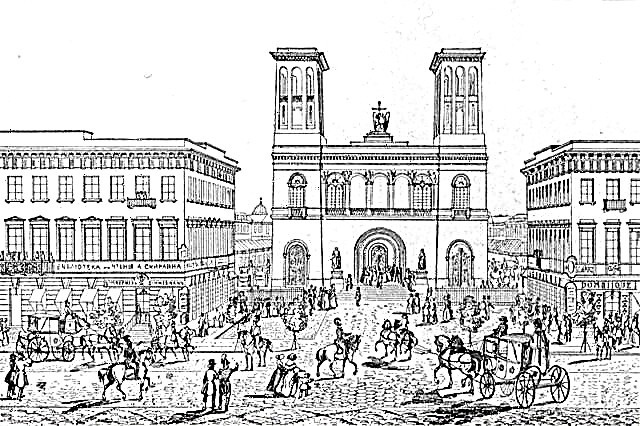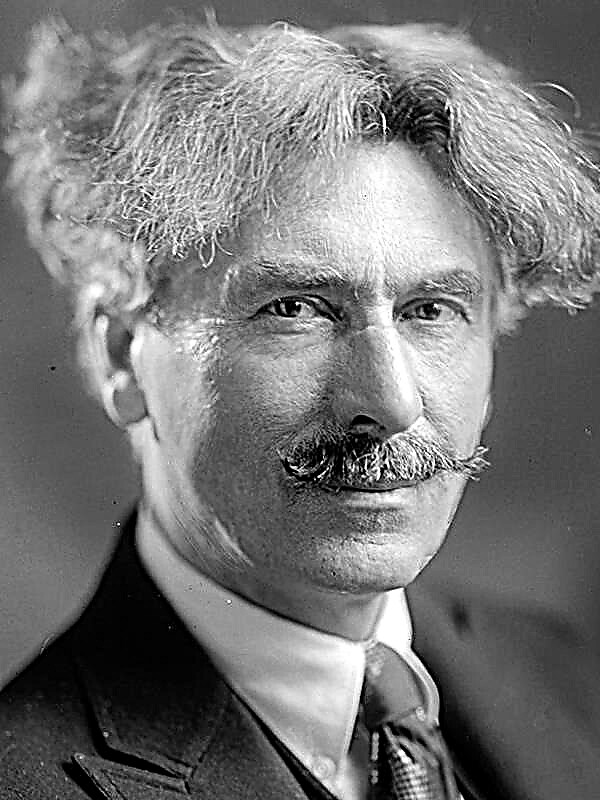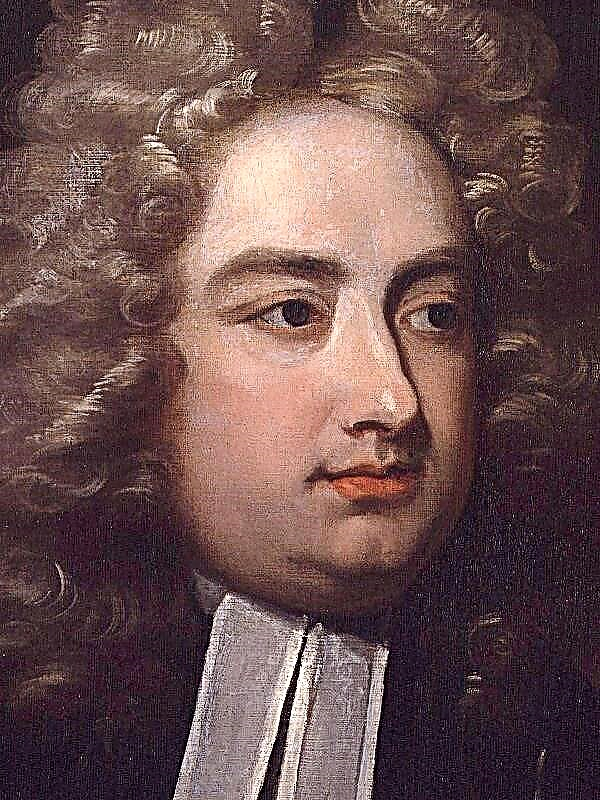Share
Pin
Tweet
Send
Share
Send
The problems captured in the headlines are, so to speak, a direction for writing on the USE in the Russian language. Arguments correctly selected for disclosing the topic are the basis of the work, those who verify it first of all pay attention, counting the points. In this collection you will find both that, and another, and also you can download it in a table format at the end of the article.
The ambiguous nature of happiness: what is it?
- In the book of D.S. Likhachev's "Letters of the Good and the Beautiful" happiness, according to the author, lies in good deeds and the desire to be useful and necessary to another person. To do good is the main goal of a person, the achievement of which brings joy and satisfaction. Building a life on the basis of exclusively personal desires is unacceptable, because the life task of people is much wider. It is in their power to change and transform the world for the better, to create something new and share it with others. The more you give, the more you get in return. “The biggest goal in life is to increase the good in our surroundings. And good is, first of all, the happiness of all people ”- this is a simple formula of happiness according to Likhachev, which makes you think about the true purpose of life and truly important values.
- Heroes of the play A.P. Chekhov's "Cherry Orchard" they talk about the nature of happiness, remember it as an unattainable dream, and yet, each of them is deeply unhappy. For each of them, happiness is defined in different ways: for some, it is the possession of material wealth, the achievement of success in business; for others - peace of mind, enjoyment of memories, experiences of past love. Obsessed with the search for bliss, they are nevertheless limited to spiritual lack of freedom, a misunderstanding of their own life, in which they feel unsatisfied and lonely. However, happiness is what each of them unconsciously strives for, wishing for the first time to experience or to regain a sense of complete satisfaction. For Ranevskaya, Gaev, Lopatin and other characters in the play, the search for good is closely connected with the contradictions of the past and the present, with the impossibility of gaining it due to internal and external circumstances, the fluctuation of desires and goals.
- The story of A. Solzhenitsyn “Matrenin Dvor” at first glance it is devoted to the everyday life of a simple Russian village, where people work, live their lives, obey established laws and habits. Among them, Matrona is an exceptional heroine. In the conditions of consumer relations, human indifference, moral desolation, people forget about the true benefits and values, preferring the egoistic petty happiness embodied in objects and things. And only Matrena retains spiritual purity and joy of life, despite the fact that many trials have fallen to her lot: loss of loved ones, hard work, illness. In the work, the heroine finds solace. Deprivations and hardships do not make her callous and cruel, on the contrary, her happiness is in the desire to be needed, to help people, to give everything, without demanding anything in return. Her love for her neighbor is active and disinterested. In this openness to the world, true happiness is manifested.
- In the novel by O. Henry “The Gifts of the Magi” Della and Jim are a married couple. They are in cramped circumstances, experiencing material difficulties, but this does not prevent them from lovingly and tenderly loving each other. Each of them is sure that his personal happiness is in the happiness of the other, therefore, sacrificing their own interests, they are not at all bitterness, on the contrary, they are happy about the opportunity to give a holiday to their loved one. Della sells hair to buy Jim a watch chain, and he sells watches to give her a comb. Having sacrificed the most beloved and dear to their heart things, the heroes gain immeasurably more: the opportunity to bring happiness to the one you love.
- In the philosophical tale-parable of A. De Saint-Exupery “The Little Prince” the search and understanding of happiness become one of the ultimate goals of the journey of the Little Prince. It turns out that in order to be happy, one must not be alone. The main thing is to find a friend to take care of, be it a lamb in a box, a fox or a beautiful flower. The closeness of a sincere, real and faithful comrade is a necessary condition in order to be happy. To take responsibility for the one you love, to help and empathize with him - the components of joy, without which life is like an endless dead desert. Happiness is felt by the heart, and, as a rule, they find it in simple human joys.
Imaginary happiness
- In the story of A.P. Chekhov's "Gooseberry" the problem of happiness is not solved by selfless service to one's neighbor. Obviously, to each his own! Nikolai Ivanovich Chimsh-Himalayan has everything that he had dreamed about for so long: his own house in the village, a carefree landlord life without labor and cares, and most importantly - gooseberries, which the hero eats all his free time. But such a simplified happiness is false: spending time in idleness, Nikolai Ivanovich launches himself, loses his moral character, ceases to live a full spiritual life. And besides, for such a seemingly simple joy he paid too dearly: he married a rich widow, who then brought him to death. Parsimony and pettiness became the main components of his character. Having become rich, he became satisfied, but lost the opportunity to find genuine inner harmony, immeasurable by material units.
- Akaki Akakievich Bashmachkin, the hero of the story N.V. Gogol's "Overcoat" - An ordinary and small person. He does not need much: he anxiously and responsibly carries out his penny work, lives starving, but, in essence, is quite happy with his fate. The habitual course of its existence violates the need to purchase a new overcoat. Bashmachkin’s reverent attitude to his acquisition is so great that the long-awaited new thing takes all his thoughts, subjugates all his actions and impulses. The ordinary thing becomes the meaning of life and the happiness of this little man obsessed with the material component of being. Bashmachkin perceives such a miserable existence as happy until random robbers take away his favorite overcoat from him. The story makes one think not only of the importance and necessity of compassion and help to one's neighbor, but also of the true causes of happiness. The official did not understand him that way, and therefore fell victim to his mistake.
- In the philosophical novel of O. Balzac "Shagreen skin" the pursuit of happiness and external well-being leads the main character Rafael de Valantin to death. His path from poverty to wealth was long and difficult: rejected by his beloved woman, having no means of livelihood, he decides to commit suicide. However, fate gives him the opportunity to choose: he enters into a deal with the owner of an antiquities shop and acquires a wonderful talisman. A shred of shagreen skin fulfills his desires, in return taking away precious moments of life. Now Rafael has everything: recognition, money, luxury goods. Having the opportunity to live as he wanted, the hero realizes that external well-being does not represent value to him. Life becomes beautiful and meaningful only when he meets true love - the young beauty Polina. But the time allotted to him to search for and achieve happiness is hopelessly lost. Too late, Raphael realizes that true values are by no means concluded in wealth, but in the diversity of bright and selfless human feelings.
Search for happiness
- IN novel L.N. Tolstoy "War and Peace" the search for happiness is becoming one of the key topics. Andrei Bolkonsky, Pierre Bezukhov, Helen Kuragina, Nikolai Rostov, Fedor Dolokhov and other heroes are people who are very different in character and attitudes. Each of them understands happiness in their own way: Bolkonsky is looking for him in military triumphs and glory, Pierre - in knowing and accepting himself, Helen Kuragin - in a marriage of convenience. Many of the characters, faced with the conventions of society and simply life difficulties, change their beliefs, abandon those views and aspirations, which were full at the initial stages of their lives. Their ideas about happiness also change: Pierre gains joy only after meeting with Natasha, Bolkonsky disappointed in the idea of a feat in the name of glory, finds true joy in love and compassion for his neighbor. The author’s position in the novel is obvious: the answer to the question of happiness is individual for each person. It all depends on the degree of openness of the soul, its willingness to know and accept the other.
- Sometimes the search for happiness is hindered by everyday difficulties, the overcoming of which takes a lot of energy. IN the story of A.P. Platonov "Potudan River" Red Army soldier Nikita Firsov returns home after several years of absence. The native village and the home environment as a whole have changed a lot, become lonely and deserted, deprived of their former happiness. Nikita is trying to build a new life on the wreckage of the old. He works in a workshop, helps his father. The day after the return, Firsov meets Lyuba, a childhood friend, with whom they had a childish reverent relationship. Heroes fall in love and decide to build a family together. But, exhausted by hunger and want, work and domestic difficulties, they cannot build the happiness that they need so much. Nikita, overwhelmed by a feeling of dissatisfaction, a lack of understanding of his place in life, decides to escape to a neighboring city. There he lives, works until his father finds him. Returning, he finds Lyuba, dying and sick. Pity and love overwhelm him; he realizes that he has never experienced such a need for happiness as now. His search ends at the moment when the hero realizes that the main goal is to share with another pain and joy, to protect and protect the neighbor who needs him.
- main character G. Flaubert’s novel “Madame Bovary” also spends his life in search of happiness. Brought up on romantic love novels, exalted stories about the depths of the human heart, Emma Bovary leaves the monastery and returns to the village to her father, where she is faced with absolute vulgarity and routine, breaking her ideas about the destiny of a woman. In an attempt to escape from a situation contrary to her, she marries a provincial doctor, thereby hoping to make her idealistic dreams come true. But the tragedy of the heroine lies in the fact that she is faced not only with the vulgarity of the philistine world, but also with her own vulgarity, which, due to her upbringing and environment, she cannot eradicate within herself. The search for happiness, the desire to experience a real exalted feeling pushes Emma to betray her husband. Her protest against established traditions and habits dips her lower and lower. Plunging into a bourgeois existence that she hates, she loses the opportunity to be happy.
- In the play by M. Gorky “At the Bottom” the characters are passionate about the nature of happiness. People living in miserable conditions are talking about a person’s destiny, good and evil, the meaning and joy of life. Behind each of them is a genuine human tragedy: Baron, Actor, Tick, Ashes, Nastya and other heroes live on a social bottom. They are forever cut off from society, but do not lose hope in gaining well-deserved happiness. Many of them mentally return to the past, they reconciled with their existence, while others make a desperate attempt to fight for their future. They seek support and understanding from the wanderer Luke, who accidentally looked into the rooming house. Luke is trying to save the heroes from harsh reality, leading them into the world of beautiful illusions, where the highest truth for a person becomes the truth that he himself wants to believe. But the severity of reality destroys the hopes of the heroes, and the search for happiness is clouded in the play by the motive of the unrealizability of the final desires of the characters.
Can one be happy at the expense of others?
- In the story A.S. Pushkin's "Captain's Daughter" the path to long-awaited happiness became a difficult test for the heroes, in which not only their mutual feelings, but the personal qualities of each of their characters were tested for strength. The struggle for the happiness of two loving hearts - Masha Mironova and Petr Grinev - is overshadowed by severe obstacles: the parents ban on marriage, the Pugachev riot, the betrayal of Alexei Shvabrin. Shvabrin is an exceptional character in his goals and actions. His path to happiness lies through betrayal and falsehood. He wraps himself with Masha, but receives a refusal, so he seeks to denigrate her in the eyes of Peter in order to stop their mutual inclination. Having not achieved what he wants, he goes on betrayal and goes over to the side of the enemy out of spiritual cowardice and personal motives. He tries to get what he wants by resorting to deception and threats, which means he chooses an erroneous and unworthy path shameful for a real person. Due to the grief of other people, he tries to build his happiness, but he does not succeed.
- Molchalin - one of the heroes comedies A.S. Griboedova "Woe from Wit" - Proud of his rapid career advancement. He dreams of building a successful career, becoming an influential person and succeeding in life. A poor nobleman from the province, he lives in the house of Famusov and in the shortest possible time receives his post of secretary. However, Molchalin is achieving results not by virtue of his merits, but due to his ability to serve the higher ranks. He treats influential people with trepidation and envy, trying to attract their attention to himself in order to curry favor. This hero is a pragmatist and cynic. To become happy, he needs the wealth and recognition of society, so he begins to care for Famusov’s daughter, Sophia. But the hero does not feel sincere feelings for her, but only uses it to achieve his mercantile goal. The path to happiness for him lies through servility, humiliation and flattery. However, his cunning plan becomes public, and Molchalin is defeated.
- IN novel by F. M. Dostoevsky “Crime and Punishment” the heroes are also trying to build their happiness, but in an attempt to figure out what it consists of, each of them faces a number of difficulties. Raskolnikov, Sonya, Svidrigailov, Marmeladov and other characters are trying to understand and accept life. Rodion knows her through the prism of his vague theory, Sonya sees her way in sacrificial and selfless help to her neighbor. The court adviser Pyotr Luzhin wants to achieve a high position in society. To be happy, it is enough for him to feel like a benefactor and a sovereign in the eyes of other people. He is flattered by the servile admiration of those below him. Therefore, Luzhin wants to marry Duna Raskolnikova. Having taken the poor girl as his wife, he hopes thereby to acquire a devoted and grateful servant. In this understanding of happiness reveals pettiness, prudence and soulful meanness of a hero who is unable to do good deeds from a pure heart. He does not achieve his goal and runs from shame, because his rotten nature was bitten by potential relatives.
Unattainability of happiness
- The main character novel A.S. Pushkin "Eugene Onegin" flees from boredom in the wilderness of the village. Tired of secular life, he is trying to find new meanings away from the society he hates. But Onegin fails to escape from himself. He kills his friend Lensky in a duel, rejects Tatyana's Love, and all because selfishness and mental cowardice make him unable to take responsibility for another person.Despite this, Eugene is a noble and deep personality, eager to fill his life with worthy goals, to find an excuse for his own existence. But in the search for happiness, he is faced with his ultimate unattainability. Having met Tatyana at the ball, whose love he had once rejected, the hero falls in love, but he is no longer able to make up the girl’s happiness. For Onegin himself, the opportunity to be happy is irretrievably lost.
- IN novel by M.Yu. Lermontova "Hero of our time" the problem of the ultimate unattainability of happiness is one of the main ones. Grigory Pechorin is an outstanding, strong, active person, but initially deprived of the opportunity to be happy, because of his isolation from the rest of society, insolvency and helplessness in the face of life. Pechorin wants to find happiness, trying to find it in books, in war, in communication with other people. But constantly rejected by others, the hero becomes hardened and disappointed in the search. Having once realized that happiness is unattainable for him, he does not value life at all, living it as it should. Due to natural human weakness, he still unconsciously reaches out to people, each time hoping to find love and understanding. But deep down he remains lonely. The search for happiness becomes for him a constant, but meaningless occupation, doomed to failure.
- In Kuprin’s novel “Olesya” the unattainability of seemingly close happiness becomes the life drama of the characters. Ivan Timofeevich accidentally drove into the wilderness meets a charming girl leading a solitary life away from people. Heroes are not alike, but this does not prevent them from ardently falling in love. It would seem that to find mutual joy is not so difficult! But the severity of the real world, with its conventions and limitation, violates the idyllic existence of the characters. Residents of a nearby village, accustomed to living a primitive, tradition-based life, reject Olesya for her dissimilarity to them. The sincere love of the heroes is powerless in the struggle of exalted happiness with brutal and merciless reality.
- V.G. Korolenko in his essay Paradox very ambiguously outlined the problem of happiness. "Paradox" is a philosophical parable that reveals to the reader the relativity of happiness, its ultimate unattainability. In the center of the story is a boy from a wealthy family. Together with his brother, they often spend time in the garden, having fun and playing. Once a lot of begging people come to their yard. In order to earn a living, they demonstrate unusual tricks to a curious public. One of them is Jan Krishtof Zaluski. From birth, he has no arms, and the body itself is devoid of proportions. The paradox of the hero is that, despite his physical illness, he preaches a philosophy of the joy of life. A man for whom happiness, it would seem, is unattainable, argues about him as an invariable component of human destiny. “Man was created to be happy, like a bird to fly,” says Zalouski. With his sudden appearance, he taught the children an important lesson. However, at the end of the story, the hero finishes the aphorism expressed earlier: “But happiness, alas, is not given to everyone.” This, in his opinion, is the contradictory nature of existence: a person is desperately striving for harmony and joy, but he is not able to achieve absolute happiness.
Share
Pin
Tweet
Send
Share
Send

